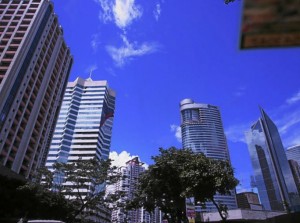BSP to regulate in-house funding schemes

The Bangko Sentral ng Pilipinas is drawing up policies to regulate the proliferation of in-house financing schemes, a popular means of aiding prospective buyers of real estate assets.
The Bangko Sentral ng Pilipinas is drawing up policies to regulate the proliferation of in-house financing schemes, a popular means of aiding prospective buyers of real estate assets.
BSP Governor Amando Tetangco Jr. said monetary authorities were reviewing in-house financing activities in the country, particularly their extent and economic impact, to avoid an asset price bubble. The review will serve as the basis for the appropriate regulations to be implemented.
Tetangco said the review was being led by the BSP and the Securities and Exchange Commission. The SEC regulates financing companies while the BSP oversees the overall credit and liquidity situation in the economy.
“A closer look at in-house financing schemes is necessary. If there is excessive lending, this could create a bubble,” Tetangco told the Inquirer.
In the ongoing review, regulators wanted to find out the volume of transactions accounted for by in-house financing companies as well as their credit standards.
Article continues after this advertisementTetangco said working closely with the SEC, together with other government agencies that are members of the Financial Stability Coordinating Council (FSCC), was necessary given that the BSP has no regulatory power over financing companies.
Article continues after this advertisementHe said in-house financing schemes were one of the subjects being discussed by the FSCC as far as managing risks to the entire financial sector was concerned. Other issues included activities related to the sale of securities.
“The FSCC is tasked to identify areas of brewing pressures and to take pro-active measures before these risks spill over,” Tetangco said in a speech during a convention of finance executives last Friday.
The move to look into the activities of financing companies was in line with efforts of the BSP to caution banks against excessive real-estate lending.
Last July, the BSP directed banks to review the extent of their exposure to the real estate sector and ensure that this was kept within prudent levels.
In particular, the BSP said banks should now include housing loans extended to individuals and loans given to socialized housing developers in the computation of “real estate exposure.” Banks are required to keep their real estate exposure at a maximum 20 percent of their loan portfolios.
Previously, only commercial loans to property developers were included in the computation of real estate exposure.
Documents from the Bangko Sentral ng Pilipinas showed that outstanding housing loans extended by thrift, universal and commercial banks in the country amounted to P232.57 billion as of the end of the first quarter, up 21 percent from P192 billion the previous year.
Nonperforming real-estate loans, or loans for which amortization has remained unpaid for a certain period following maturity, accounted for 5.6 percent of total real estate loans. Although considered negligible, the 5.6 percent was higher compared with the average NPL ratio for all types of loans, which was just about 2 percent.